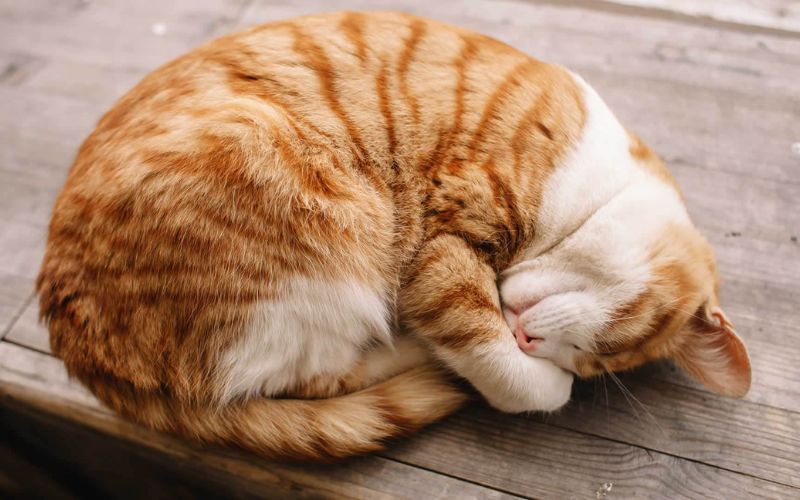As cat owners, we often become concerned when our feline pets become ill. Cats are adept at hiding their discomfort, and a change in their sleeping patterns and location can be one of the first indicators of illness we notice. Understanding these differences can provide useful information about your cat’s health and well-being. In this post, we’ll look at the different positions a cat sleeps in when it’s sick, examine what they could mean, and answer some of the most frequently asked questions about the subject.
Why Do Cats Sleep So Much?
Cats are natural sleepers, and a healthy cat can sleep for 12 to 16 hours each day. This extended rest is important for their physical and emotional health. Cats can recharge their batteries, repair tissues and boost their immune systems while they sleep. When a cat is sick, it may sleep more to maintain energy and aid in the healing process.
Cat Sleeping Positions
Cats are notorious for sleeping in a variety of postures, and each posture can provide information about their mood and degree of comfort. Healthy cats usually sleep in the following positions:
- Cuddle ball: In this position the cat curls up into a tight ball by wrapping its tail around its body. This indicates that your cat is feeling protected and safe.
- Belly-up pose: When a cat rests on its back with its belly exposed, it shows that it is relaxed and trusting of its surroundings. However, this stance may be less common when sick.
- Side stretch: Cats often sleep on their side, which shows that they are comfortable with their environment.
Common Illness Symptoms in Cats
Before we go into specific sleeping positions that may indicate illness in cats, let’s look at some of the more common signs of illness in cats:
- Change in appetite: A sudden increase or decrease in eating habits can be a sign of illness.
- Lethargy: If your cat is unusually tired and lacks energy, it could be a sign of a health condition.
- Avoidance of interaction: Cats in pain or distress may avoid social interaction or handling.
- Diarrhea or vomiting: Digestive problems can be symptoms of a variety of disorders.
- Grooming habits change: Sick cats may over-groom or neglect grooming altogether.
Cat Sleeping Positions When Sick
When your cat is sick, her regular sleeping position may be different. The following are some of the signs that your cat may be sick based on his sleeping position:
- Hiding: If your cat begins to sleep in unexpected areas, it may be a sign that they are feeling insecure and are attempting to avoid interaction.
- Curling up tighter: When cats are unwell, they may curl up more tightly than usual. This stance allows them to retain body heat as well as protect their vital organs.
- Lack of movement: A sick cat may prefer to sleep in one place and move very little because they are too weak or feel pain to move.
- Abnormal Body Alignment: Due to discomfort, an unhealthy cat may sleep with its body distorted or in an abnormal position.
FAQs
Is it normal for my cat to sleep more than usual?
No, not always. Cats sleep a lot by nature, and increased sleepiness can be a normal response to changes in their environment, weather, or mood. However, if you find other indicators of illness or your cat’s behavior has changed significantly, you should visit a veterinarian.
My cat’s resting position has changed, but everything seems fine. should I be worried?
A change in sleeping position may not always indicate a problem. Other signs of illness include changes in eating, drinking, grooming, or energy levels. If you are unclear or concerned, please seek professional guidance from a veterinarian.
Can my cat’s sleeping position be affected by stress or anxiety?
Yes, stress or anxiety can affect a cat’s sleeping habits. When cats are stressed or threatened, they may seek hidden or elevated sleeping areas. Making your cat’s environment peaceful and safe will help reduce such problems.
When should I take my sick cat to the vet?
If you notice a significant change in your cat’s sleep status, behavior, eating habits or any other indicator of illness, contact your veterinarian immediately. Early detection and treatment can greatly improve your cat’s health and recovery.
Conclusion
Understanding your sick cat’s sleeping position can provide important clues about their health. While cats sleep a lot, a change in their regular sleeping patterns, especially when accompanied by other signs of illness, should prompt you to seek professional veterinary treatment. Remember, as a cat owner, you play an important role in maintaining the health and happiness of your feline companion.
